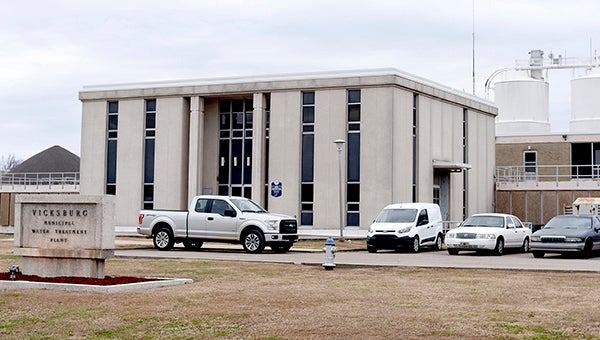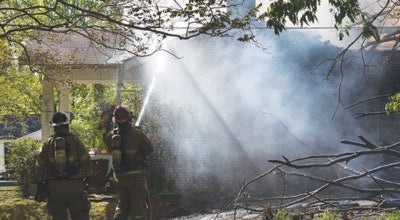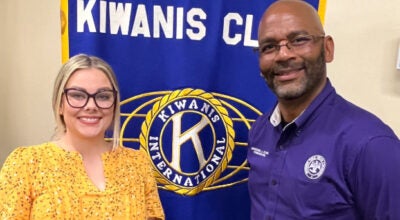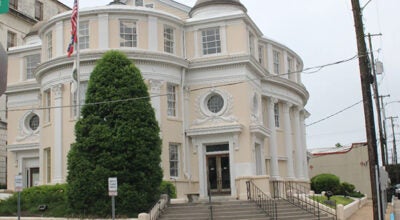Engineers recommend 10-year improvement program for Vicksburg’s water system
Published 4:24 pm Monday, July 5, 2021

- The city's water treatment facility located on Haining Road. (Courtland Wells/Vicksburg Post, file photo)
An engineering firm hired to study the city’s water system has recommended a 10-year, estimated $18.6 million capital program to improve it.
The draft report summary presented Thursday by Houston, Texas-based Trilogy Engineering highlighted several issues besides the recommended upgrades to the system.
The city’s water treatment plant on Haining Road has a capacity of treating up to 16 million gallons of water per day, said David Peters, senior project manager for Trilogy. The city, he said, has a more than adequate groundwater supply.
“You have 17 wells; on a typical day they only use five of those 17 wells at anyone one time,” he said.
Trilogy’s recommendations, Peters told the board, “Is sort of looking forward of where you need to go.”
The recommendations to improve the system’s efficiency and ability to operate at maximum capacity are listed by priority and include, he said, upgrading about 81,000 feet of pipe.
Among the top priorities are:
• Adding parallel pipelines between the clarifiers and filters at the water treatment plant.
“There are two lines that go over from the clarifier to the filters,” Peters said. “What’s happened over time, the pipes developed deposits and when the plant is operating at full max capacity it actually stops at 10 or 11 MGD because the pipes are constricted.”
• Deepening the clear well suction pipelines. The system used to draw water to the plant’s clear well creates a vortex that forces air in the tank, forcing plant workers to shut it down.
What happens, Peter said, is “You have a lot of capacity in your clear well that you’re not using.” The solution, he said, is to install a sump pump and change the angle of the pipes to “90 degrees going down” to eliminate the vortex.
• Installing a new elevated storage tank. “When we get into this, a lot of study will have to be made on where you put it, where’s the site, what elevation do you put it in,” Peters said.
• Installing fire hydrants.
• Service line connectors.
Another recommendation is a geographic information system survey of the city’s water system linked directly to a hydraulic model for determining future projects and repairs.
Mayor George Flaggs Jr. told Peters the GIS system monitoring the waterlines should be a priority.
“It’s necessary,” Flaggs said after the meeting. “It’s been needed for years. It makes sense to know where your leak is and it allows you to isolate our pipes based on the link. What it will do is reduce the amount of downtime.
“I’m interested in seeing how much that costs,” he said, indicating he believes the ability to monitor the system should take top priority.
Another priority, Flaggs said, is locating missing revenue from the water system.
Peters said the city is experiencing a 30-percent loss in revenue from water service.
“You’re only billing 70 percent of the water you’re producing,” he said. “Somewhere, there’s a 30-percent loss.”
Peters said the study did not go into depth about a second water plant in the south end of town.
The present plant “has a lot of excess capacity in it,” he said. “We do not believe that in the next 10 years that would be something (a second plant) to do.”
Peters said, however, said city officials may want to consider a second plant after 10 years and consider finding a second aquifer.
The board hired Trilogy, which has an office in Jackson, to perform a comprehensive evaluation of the city’s water system called a capacity study to evaluate the plant’s capacity for the city and its customers, including the two water districts — Culkin and Yokena-Jeff Davis — that buy water from the city.
The study was commissioned in the wake of a paralyzing ice storm in mid-February that created problems for the city’s water system.
Flaggs said on Feb. 22 he wanted to upgrade the city’s water system to avoid future crises like the one that occurred during the storm.
Peters said Trilogy engineers spent 30 days observing the water system to develop data for the study.
“We went through the water plant, went to all your elevated storage facilities,” he said. “We gathered considerable data on water use throughout the city. We looked at the existing system. We looked at the state’s local requirements.”
The engineers also developed a hydraulic model to determine how the storage tanks were working.






